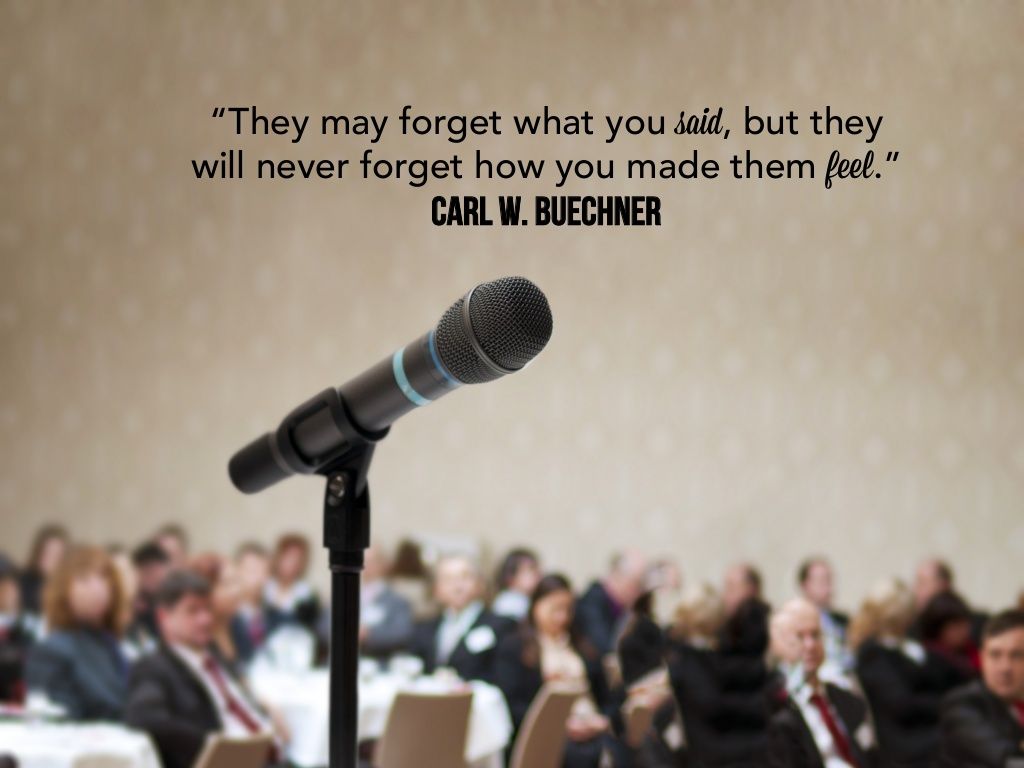The practice of public speaking is an invaluable skill to learn, because not only does it open you up to opportunities, it helps share your voice and views with the world. Whatever your reasons may be for wanting to improve in public speaking, I am sure you would find these tips useful.
- Know Your Audience
- Organize Your Material Effectively
- Practice and rehearse
- Make eye contact and use good body language
- Don’t talk right away
- Breathe deeply, smile, and stay hydrated
- Embrace your Nervousness
- Speak Unusually Slow
- Use an Outline
Know Your Audience
If you are speaking in front of an audience, there is usually a reason. Know who you are speaking to and what they want or need to take away. If it’s friends and family, entertain them. If it’s a corporate event, teach and inspire them. Knowing the demographic of the audience is imperative. Think about why you are speaking and where you are speaking, you can use a checklist such as the SAGE RFK which stands for: the size of the audience, age, gender, education (experience and socioeconomic level), religion, friendliness, and if the audience knows about you.
Organize Your Material Effectively
Create the framework for your speech. Write down the topic, general-purpose, specific purpose, central idea, and main points. Make sure to grab the audience’s attention in the first 30 seconds. You don’t have to write out your whole speech. But you should have some sort of outline that works for you.
Practice and rehearse
Practice and record your speech and taking notes on how you speak, the tenor of your voice, body language, and other factors will allow you to speak with confidence. Then watch yourself and take notes on how you sound and look. Make the necessary adjustments. You can also give your presentation to the mirror, your partner/mum/housemate for more feedback.

Make eye contact and use good body language
Look your audience in the eye, and use facial and hand expressions. Whatever your topic, remember that your speech isn’t boring, and you shouldn’t be either.
- Look your audience members in the eye. Focus on someone and make eye contact for a sentence or two. Doing this shows your audience that you are speaking to the audience, not at the audience. Making eye contact can also help you stay calm. Focusing on one person at a time and treating it like a conversation instead of speaking to a large group might feel more comfortable to you.
- Your body language is just as important and your words. If you stand still and are stiff, you’ll come off as boring and nervous. If you wave your arms too much or move around a lot, you can also look frantic and nervous. Stand straight and remember your nervous habits. Feel free to move around when you transition to a new thought. Walk at a steady pace and mirror your pace with your talking speed.
Don’t talk right away
As you walk out on stage, a lot of people start talking right away, and it’s out of nerves, that communicates a little bit of insecurity and fear. Instead, quietly walk out on stage, take a deep breath, find your place, wait a few seconds and begin.
“I know it sounds long and tedious and it feels excruciatingly awkward when you do it but it shows the audience you’re totally confident and in charge of the situation.”
Simon Sinek
Breathe deeply, smile, and stay hydrated
Breathing is a key component in delivering a great speech. Your breath and the oxygen you allow to enter your body will keep you calm and focused. Smiling makes you happy and water keeps you energized. When you smile, you feel better.

Embrace your Nervousness
All people feel some physiological reactions like pounding hearts and trembling hands. Do not associate these feelings with the sense that you will perform poorly or make a fool of yourself. Some nerves are good. The adrenaline rush that makes you sweat also makes you more alert and ready to give your best performance. Simon Sinek observed that these feelings are also common in Olympic athletes and like them he says:
When you’re up on stage you will likely go through the same thing. That’s when Sinek says you should say to yourself out loud, “I’m not nervous, I’m excited!” “When you do, it really has a miraculous impact in helping you change your attitude to what you’re about to do,” Sinek says.
entreprenuer.com
Speak Unusually Slow
Nothing shows nerves more than racing through your presentation. If you want to impact the audience in a meaningful way, make sure they actually hear what you are saying. Slow it down.
Use an Outline
Reading from a script or slide fractures the interpersonal connection. Instead use an outline to serve as a jog to your memory and keep you on task. Refer to your outline when you need it. But don’t look down and read from it.
Thank you for reading.

